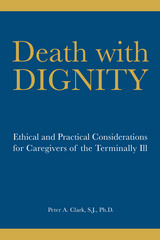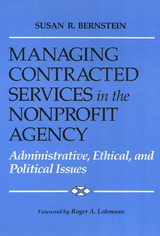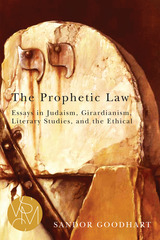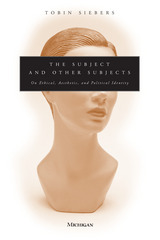
End-of-life issues and questions are complex and frequently cause confusion and anxiety. In Death with Dignity,theologian, medical ethicist, and pastoral caregiver Peter A. Clark examines numerous issues that are pertinent to patients, family members, and health care professionals, including physiology, consciousness, the definition of death, the distinction between extraordinary and ordinary means, medical futility, “Do Not Resuscitate” orders, living wills, power of attorney, pain assessment and pain management, palliative and hospice care, the role of spirituality in end-of-life care, and physicians’ communication with terminal patients. Patients, family members, medical students, and health care professionals will find in Death with Dignity thepractical and ethical knowledge they need to capably and confidently cope with end-of-life challenges.

Presenting a robust conversation among leading scholars in the areas of international legal standards, counterterrorism strategy, humanitarian law, and the ethics of force, Drones and the Future of Armed Conflict takes account of current American drone campaigns and the developing legal, ethical, and strategic implications of this new way of warfare. Among the contributions to this volume are a thorough examination of the American government’s legal justifications for the targeting of enemies using drones, an analysis of American drone campaigns’ notable successes and failures, and a discussion of the linked issues of human rights, freedom of information, and government accountability.

In this volume, scholars from philosophy, sociology, history, theology, women’s studies, and law explore the looming ethical and social implications of new biotechnologies that are rapidly making it possible to enhance an individual’s mental and physical attributes in ways previously only imagined.
To clarify the issues, the contributors grapple with the central concept of "enhancement" and probe the uses and abuses of the term. Focusing in particular on the moral issues pertaining to cosmetic surgery and cosmetic psychopharmacology (a category which includes Prozac), they also examine notions of identity, authenticity, normality, and complicity. Other essays in this collection address the social ramifications of the new technologies, including the problems of access and fairness.

The publication in 1807 of Georg Wilhelm Frederich Hegel’s Phanomenologie des Geistes (translated alternately as “Phenomenology of Mind” or “Phenomenology of Spirit”) marked the beginning of the modern era in philosophy. Hegel’s remarkable insights formed the basis for what eventually became the Existentialist movement. Yet the Phenomenology remains one of the most difficult and forbidding works in the canon of philosophical literature.

The major humanitarian crises of recent years are well known: the Shoah, the killing fields of Cambodia, the Rwandan genocide, the massacre in Bosnia, and the tsunami in Southeast Asia, as well as the bloody conflicts in South Sudan, Syria, and Afghanistan. Millions have been killed and many millions more have been driven from their homes; the number of refugees and internally displaced persons has reached record levels. Could these crises have been prevented? Why do they continue to happen? This book seeks to understand how humanity itself is in crisis, and what we can do about it.
Hollenbach draws on the values that have shaped major humanitarian initiatives over the past century and a half, such as the commitments of the International Committee of the Red Cross, Oxfam, Doctors Without Borders, as well as the values of diverse religious traditions, including Catholicism, to examine the scope of our responsibilities and practical solutions to these global crises. He also explores the economic and political causes of these tragedies, and uncovers key moral issues for both policy-makers and for practitioners working in humanitarian agencies and faith communities.

The philosophy of Emmanuel Levinas affirms both the urgency of peace and the fact that peace is never finally assured. This tension is a question of responsibility and of the ethical relation in which that responsibility is grounded. Jeffrey Bloechl pursues this prophetic dimension of Levinas’s philosophy—his commitment to phenomenology and to a philosophy of religion—to make the case for the mutual reinforcement and intelligibility of these two threads.
Levinas on the Primacy of the Ethical traces the emergence of Levinas’s early thought in relation to modern political philosophy, his revision of Martin Heidegger’s existential phenomenology, the consolidation of his mature position, his important differences with Freudian psychoanalysis, the turn from metaphysics to language in his later philosophy, and his complex relationship with Christian theology. Starting with an exposition of how positive notions of religious transcendence are already present in some of Levinas’s early phenomenological texts, Bloechl then stakes the reverse claim: that Levinas’s conception of God is dependent on his existential phenomenology. Proceeding chronologically, but with frequent nods to later developments, this book builds toward the ultimate assertion that Levinas offers us a phenomenology of event and of relation without appeal to any foundation, ground, or causal principle. Only in this way is Levinas able to generate an argument—and not merely an exhortation—for the primacy of the ethical as he conceives it.

Through interviews conducted with nonprofit agency managers in the New York City metropolitan area, Susan Bernstein vividly describes their experiences with "contracting out," the principal way that the "reluctant" American welfare state has of providing public services through the private sector. The agency administrators look upon this as a nightmarish game and their stories illuminate how welfare state mechanisms work in practice as well as the tangled nature of bureaucracies Bernstein illustrates and analyzes these administrators’ strategies for managing the administrative, ethical, and political issues of contracted services. Managing Contracted Services is one of the first books to examine how administrators manage contracted services in a bureaucratic and political environment.


The Supreme Court has ruled that states may prohibit physician-assisted suicide. Expressing the views of his fellow justices, Chief Justice Rehnquist wrote, "Americans are engaged in an earnest and profound debate about the morality, legality, and practicality of physician-assisted suicide. Our holding permits this debate to continue." Regulating How We Die is certain to be a landmark contribution to that debate.Dr. Linda Emanuel--one of America's most influential medical ethicists--has assembled leading experts to provide not only a clear account of the arguments for and against physician-assisted suicide and euthanasia but also historical, empirical, and legal perspectives on this complicated issue. These contributors include Marcia Angell, George Annas, Susan Wolf, and many others.
The important questions are addressed here, including: What does mercy dictate? Does physician-assisted suicide honor or violate autonomy? Is it more dignified than natural death? Is this decision purely a private matter? Will legalizing physician-assisted suicide put us on a slippery slope toward involuntary euthanasia? And, in an analysis of data not available in any other book, what can we learn from Holland, the only country in which physician-assisted suicide and euthanasia are legal?
Regulating How We Die will be essential reading for anyone who has been handed a terminal diagnosis, for people close to those facing such a diagnosis, for professionals, including physicians, nurses, pastors, lawyers, legislators--indeed, for anyone who has considered the moral and political debate over doctor-assisted suicide.

Tobin Siebers raises a series of questions that "cross the wires" among ethical, aesthetic, and political definitions of the self, at once exposing our basic assumptions about these definitions and beginning the work of reconceiving them. The Subject and Other Subjects will broaden our ideas about the strange interplay between subjects and objects (and other subjects!) that characterizes modern identity, and so provoke lively debate among anthropologists, art historians, literary theorists, philosophers, and others concerned with how the question of the subject becomes entangled with ethics, aesthetics, and politics. As Siebers argues, the subject is in fact a tangled network of subjectivities, a matrix of identities inconceivable outside of symbols and stories.
Tobin Siebers is Professor of English at the University of Michigan, and author of Cold War Criticism and the Politics of Skepticism; Morals and Stories; The Ethics of Criticism; The Romantic Fantastic; and The Mirror of Medusa.
READERS
Browse our collection.
PUBLISHERS
See BiblioVault's publisher services.
STUDENT SERVICES
Files for college accessibility offices.
UChicago Accessibility Resources
home | accessibility | search | about | contact us
BiblioVault ® 2001 - 2024
The University of Chicago Press









